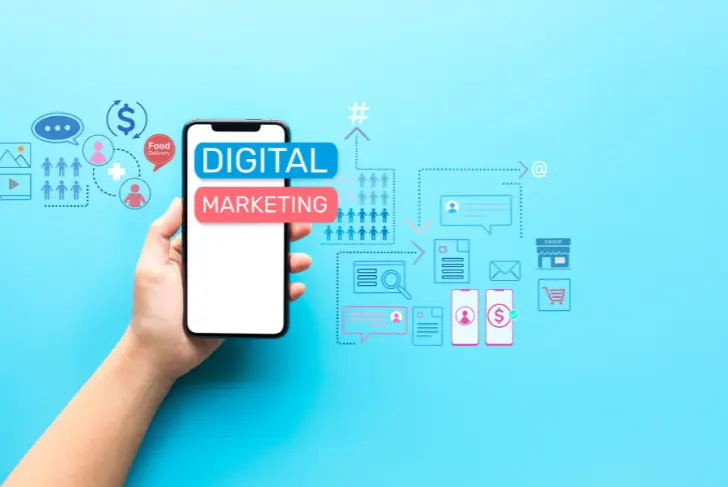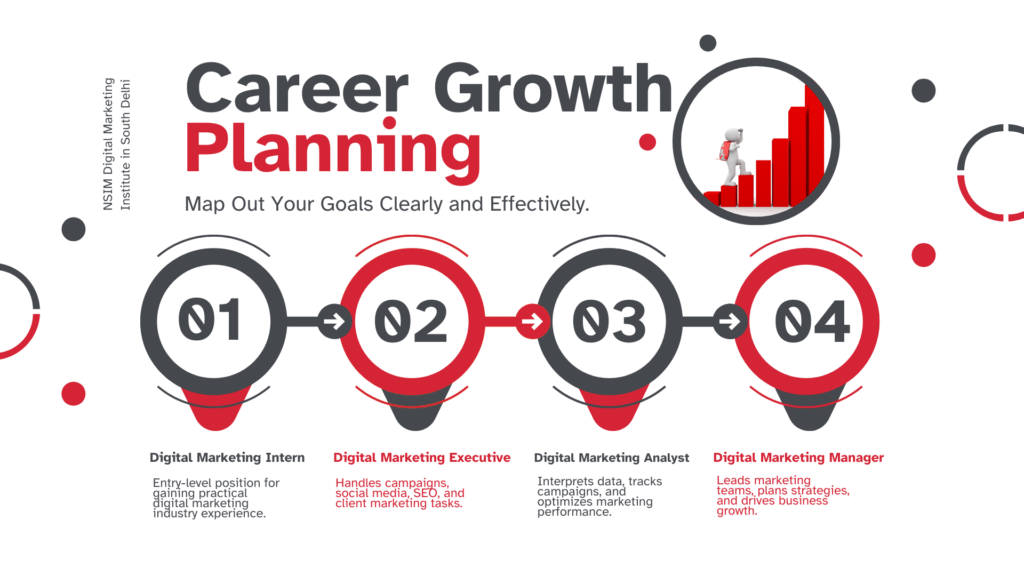The digital marketing future is ripe with alternative browsers and new social media platforms. Significantly though, for many clients at least, the future of advertising looks bright and signals a new opportunity to gain a competitive benefit in their chosen sector, whilst concurrently leading in a wave of electrifying new tools and ways of working for those of you who work for a Google Ads agency or PPC.
Marketing professionals are now accountable for connecting with customers through various channels while prioritizing certain digital marketing services, like SEO.
Among the advancements that changed the tide of digital marketing and content marketing, a few of the most noticeable trends include:
- Enhanced focus on SEO
- Development of hyper-targeted advertising
- The emergence of social media marketing
- Expanded interest in customer experiences
Before diving into the Digital Marketing Institute in Delhi, let us take a better look at the factors that have radically influenced digital marketing’s development over the years.
Over time, social channels have transitioned quickly from networking opportunities to advertising opportunities, with advertisements, sponsored posts, and social media “influencers” raging in popularity.
The word “SEO” was first used in the digital marketing sector. At the beginning of the internet boom, blogging was the best online trend. There were no rules about how you could use keywords, so most digital marketers used “keyword stuffing,”. Later on, in 2011, Panda Update was designed to fight “Black Hat SEO techniques” or methodologies frowned upon by search engines.
The Panda update started to reward brands that offered value for their audience. Google fast became the power among search engines, and their algorithm changes have evolved SEO immensely. Organic search now dominates 53.3% of all web traffic. And with the number of searches made on users’ mobile devices and smart devices increasing year-over-year, best practices continue to shift regularly.
An online marketing trend that is tremendously prevalent over the past decade is the development of hyper-targeted advertising and cookie tracking, and data practice. Hyper-targeting tracks a web user’s digital footprint all through the internet, from the websites they visit the language they use in communication. Digital cookies are analyzed, stored, and sold to categorize users using a computer network and monitor their buying history. But, an augment in ePrivacy concerns will impact this trend in years to come. The decisions by companies to eliminate third-party cookies have cemented the need for brands to acquire and manage customer first-party data such as mobile numbers, email addresses, and more developed customer profiles.
Though change is constant in digital marketing strategy, the upcoming wave of online marketing trends is impossible to forecast. Instead, the past decade has paved the way for the future of marketing, from technology down to consumer preferences. With the current evolution of popular digital marketing strategies top of mind, it is time to stare at what the future of marketing now has.
The rise in programmatic advertising campaigns
- Dynamic content optimization and advanced video marketing
- Growth of alternative browsers
- Growing focus on consumer experience and privacy protection
- Increased use of augmented and virtual reality
- Importance of socially conscious and inclusive marketing
- Higher-level integration of artificial intelligence
Also Read: What are Digital Marketing Skills in Demand in 2023?




